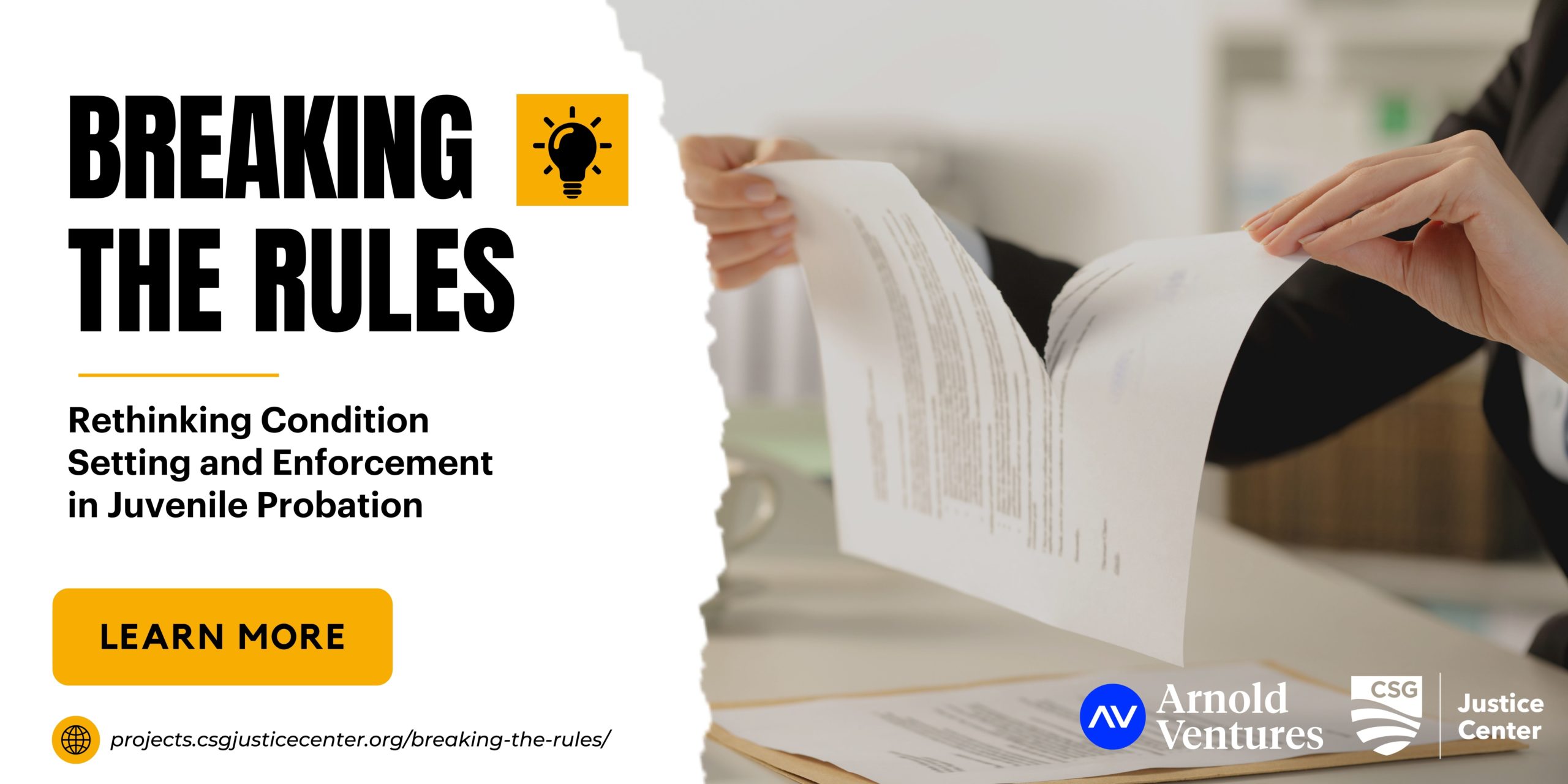
New Toolkit Features Resources and Strategies to Help Jurisdictions Improve Juvenile Probation Systems
This week, The Council of State Governments (CSG) Justice Center, in partnership with Arnold Ventures, launched a groundbreaking new toolkit to advance a more effective and equitable approach to the juvenile probation system. The Breaking the Rules toolkit features an array of resources for state and local juvenile probation agencies, courts, and other key juvenile justice partners, including videos, tools, findings from a 50-state policy scan, and other information to help improve current policies and practices.
Probation is the most commonly used intervention for youth in the justice system. But research shows that the current juvenile probation system has a limited impact on recidivism and can even do more harm than good, especially for lower-risk youth.
Improving outcomes for youth in the juvenile justice system requires a fundamental shift in the purpose and goals of probation, including rethinking probation condition setting and enforcement. The status quo in practice often means that juvenile probation agencies and courts focus on monitoring youth for mistakes or probation violations instead of prioritizing positive behavior change and community safety. This fails to set up youth for success, often increasing their interactions with the justice system and leading to further system inequities. For example, a substantial number of youths who are in state custody or detained are there because they have violated probation, often for technical—not criminal—reasons. Moreover, in 2019, Black youth were five times more likely to be detained, and almost four times more likely to be committed to state custody for a violation, than White youth.
This new toolkit allows jurisdictions to do the following:
- Analyze their current approach to juvenile probation policies and practices and whether it prioritizes improved community safety and youth outcomes.
- Change how they set and enforce probation conditions, including promoting strategies that are research based and developmentally appropriate for motivating positive youth behavior and increasing youth and system accountability and equity.
- Develop policies and protocols that help probation officers, service providers, and other key stakeholders, including streamlining practices, setting expectations, and creating strategies for supporting on-the-ground implementation of system improvements.
In 2021, the CSG Justice Center conducted listening sessions and focus groups with key juvenile justice stakeholders, including law enforcement, policy and advocacy organizations, probation practitioners, researchers, and youth and their families who have direct experience with juvenile probation systems. During these sessions, CSG Justice Center staff solicited information about their experiences as well as opinions on recommendations for improved practices. Based on the information obtained during these sessions, as well as a 50-state policy scan, the toolkit was created to help jurisdictions develop more effective, equitable approaches to probation condition setting.
To further this work, the CSG Justice Center is seeking to partner with two jurisdictions to receive cost-free, intensive technical assistance. Over the course of 9–12 months, the CSG Justice Center will help the selected sites assess their approach to juvenile probation condition setting and enforcement. This will include the use of graduated responses, technical violations, and revocations, incorporating data on type, frequency, who receives them and why, and outcomes. View the application here.
About the author

 Zero Returns to Homelessness Initiative Launches Nationally, with Pennsylvania Leading the Way
Read More
Zero Returns to Homelessness Initiative Launches Nationally, with Pennsylvania Leading the Way
Read More
 New Hampshire Continues Justice Reinvestment Effort to Improve Conditions for People Who Are High Utilizers of Criminal Justice and Behavioral Health Systems
Read More
New Hampshire Continues Justice Reinvestment Effort to Improve Conditions for People Who Are High Utilizers of Criminal Justice and Behavioral Health Systems
Read More














